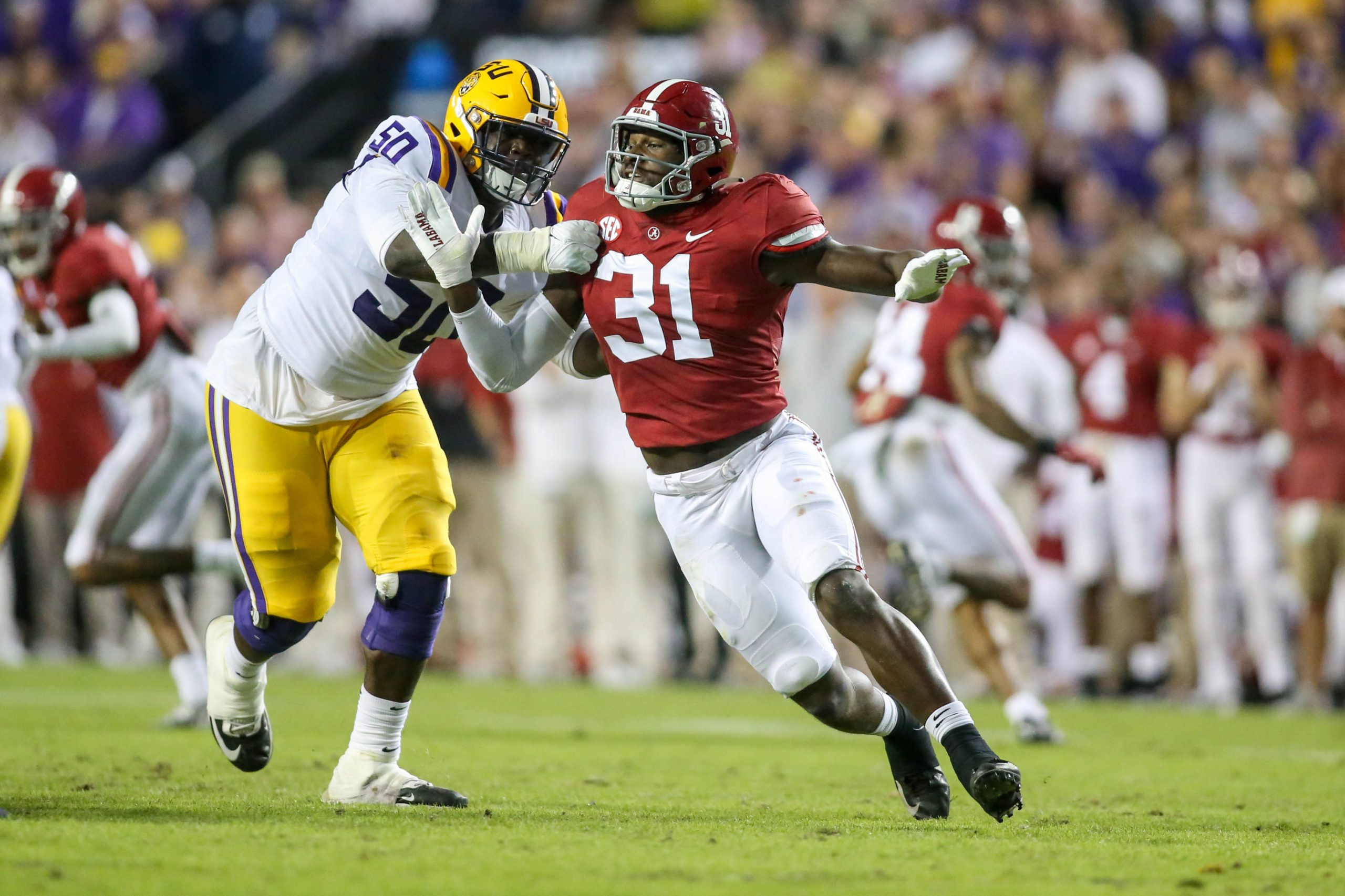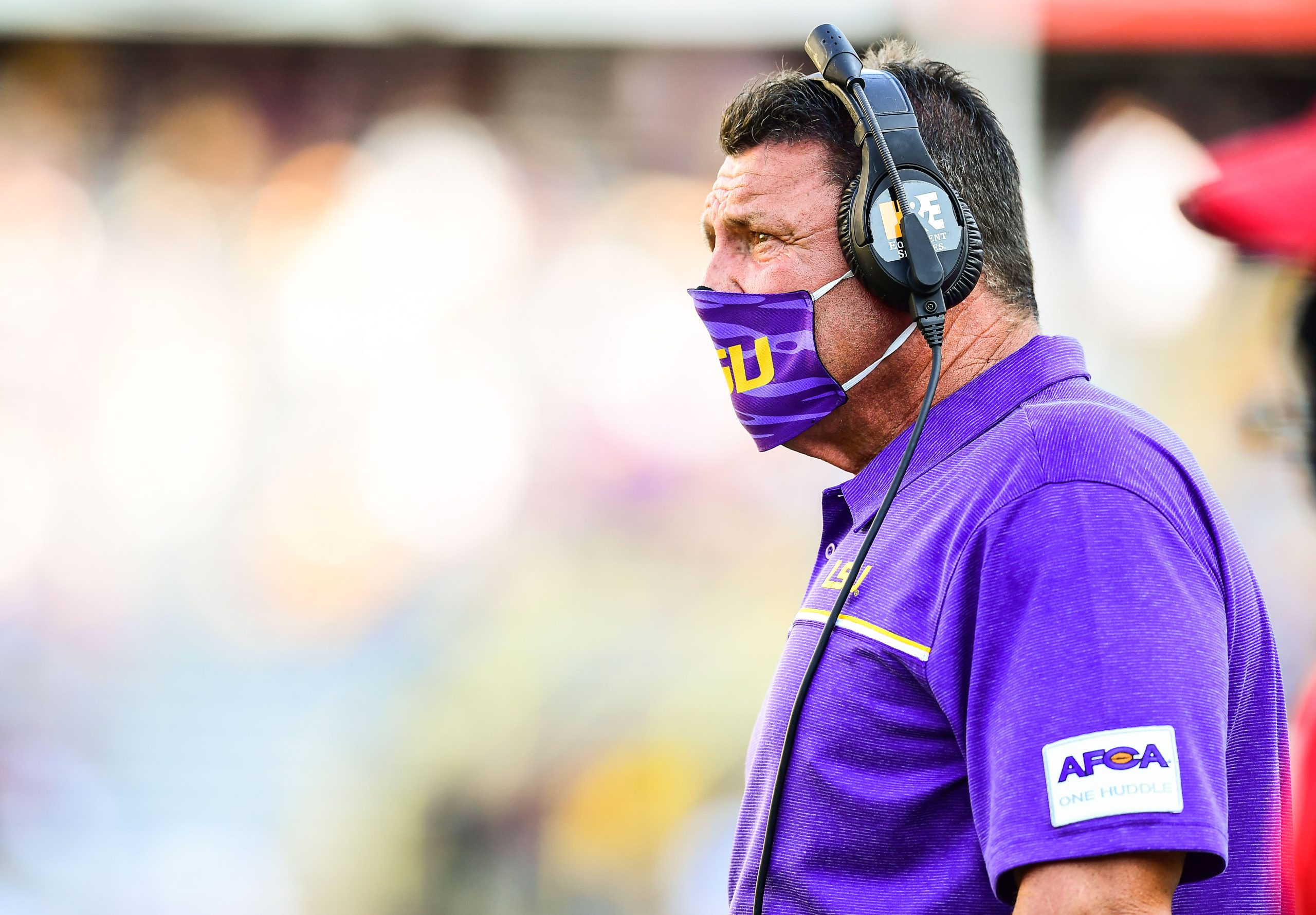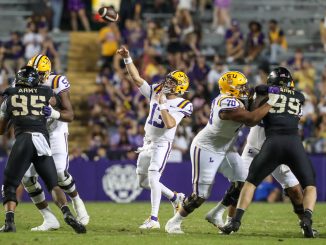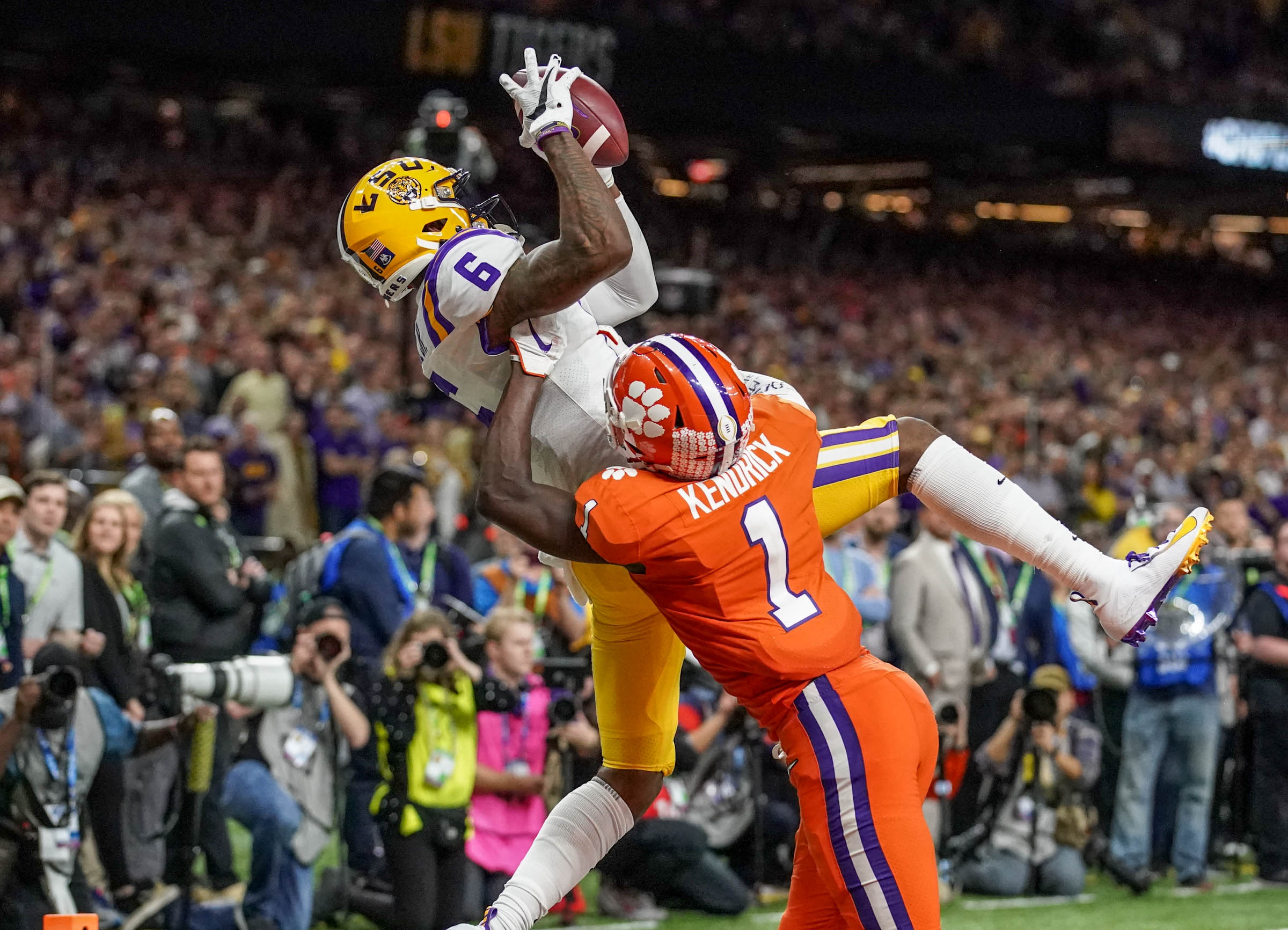
With each passing week in the Southeastern Conference comes a historical lesson for LSU first-year coach Brian Kelly.
As a history buff of sorts, Kelly’s become apprised of the tradition attached to certain league games, especially those with a traveling trophy attached to the winner.
With No. 7 LSU (7-2, 5-1 in SEC) traveling to Arkansas (5-4, 2-3) for Saturday’s 11 a.m. kickoff from Razorback Stadium, Kelly’s aware that his Tigers can retain their lead in the SEC West, but also leave northwest Arkansas with the Golden Boot trophy, that’s four feet tall and weighs 200 pounds.
This will be the 27th rendition of the Golden Boot series where LSU leads Arkansas, 17-9.
“I think there is a rivalry I mean, obviously we lost the trophy last year in overtime and it means a lot to our guys, you know each and every week,” Kelly said during Wednesday’s SEC Coaches’ Teleconference. “You know there’s such a great history and tradition that you hear about these games, you know from Florida to Mississippi and the Magnolia trophy and certainly this week as well.
“You know the Golden Boot is one that you know the guys know about and it’s important, so they want to get that trophy back,” Kelly added. “Each and every week, it’s been exciting because for me, it’s new. But it’s great to know the history and tradition of each one of these and there’s no question that it is important.”
LSU has won its last three game SEC games to gain the inside track to the league’s championship game Dec. 3 in Atlanta. The Tigers reached a season’s high No. 7 ranking in both The Associated Press poll and College Football Playoff rankings this week following last week’s 32-31 overtime win over Alabama.
Here’s what else Kelly had to say:
Opening statement:
“Certainly, with the success that we’ve had, we’ve entered into a new part of how we think, and our team needs to now handle success and that means preparing the right way. avoiding distractions, and really working on what they’ve been good at and that is day to day. You know, certainly preparation, their practice. Being better at all the details, and so we hope to continue that as we get ready for another great offense in Arkansas. In the SEC, you’ve got to prepare for dynamic players, and we’ll have a challenge again going to Fayetteville on the road and the SEC, playing a well-coached team. Very, very difficult team to play offensively. They mix things up on defense. Handling success, preparing the right way and then playing another outstanding offensive team on the road in the SEC will be a great challenge for us.”
On getting help from Greg Brooks Jr. and Joe Foucha to defend Arkansas QB KJ Jefferson?
“They’re from Louisiana and I think it’s really about playing for LSU and not anything to do with Arkansas really. There’s not a whole lot you can do. You’ve got to defend a dual threat quarterback. We know we’ve got to do a great job with 11 players defending KJ.”
On Harold Perkins’ development?
“The process was this year he came in as an inside linebacker and I think we identified early on that; you know that was going to take longer for us to get him into the rotation on the field. So, we moved him to an outside linebacker position, which we felt like was an easier fit, for him to pick up what we wanted. Because we could put him into different packages, third down packages, nickel packages, dime packages and then it’s evolved to the point where he was making plays and being productive. We had to get to the point where we had base defenses with him on the field. So, this was about giving him as much as he could handle and then getting the best 11 players. So, there was an evolution here along the way. But I think we found out early on that this was a young man that that definitely needed to get on the field and then we had to figure out how to do that with without putting too much on him.”
On your recent success of winning last 17 games coaching in November?
“Good players you’re going to have good players. I think it’s really about starting this process with an eye towards making sure that November is when you want to be your best and so January February and March. You know all those months have to be measured and it’s a long year. You have to be careful in the way you train and taking a 365-day view at this with an idea that you want your team peaking in November, December. I think that that’s how I’ve tried to do it and use a little bit of a science to help you look at player loads and making sure your team’s getting stronger with your weight training program during the year, nutrition, fatigue. All those things play a part and I think I think a little bit of the science helps you with that as well and making sure your kids are mentally and physically not overloaded and fatigued.”
On picking up anything from Liberty’s defense limiting Arkansas’ running game?
“I think Liberty is a well-coached football team. But I think Arkansas just didn’t execute as well as they have executed in weeks past. I think it was a little bit of both. I think it was Liberty playing well and playing aggressively. I thought that they crowded the line of scrimmage and maybe took advantage of some things that by playing aggressively at the line of scrimmage, made it difficult to run the football. And then I think Arkansas obviously didn’t have the best game.”
On home crowd environment last week against Alabama?
“I think it was one of the best sustained atmospheres that I’ve coached in, and I think what separated it was the sustained atmosphere. I think the play was so good on both sides of the ball that it just engaged the fans for four quarters. Usually there’s kind of an up and down where there’s a bit of a lull in the game. But the way the kids played on both sides of the ball, they were on their edge of their seat the entire game and it just created one of those special nights in Death Valley that people have written about and talked about, and I was fortunate to be part of.”
On team’s play since loss to Tennessee?
“I think a little bit of it was in their preparation after Tennessee, recognizing that what they thought that they were giving was not enough in terms of being intentional. I think that there’s the old adage, don’t mistake activity for achievement. And although they were working hard there, they needed to be much more intentional in the way they did things. And I think that after the Tennessee game, they kind of found that out that that just working is not enough. You have to be so intentional in your work. And I saw that pick up after the Tennessee game and you could see it in our preparation.”
On impact of play of BJ Ojulari?
“He’s a leader by example. He works hard, does the right things on and off the field, sets a great example. When you’re talking about culture change, when you’re talking about standards and doing things differently, you need a couple of guys early on that kind of set that example by the way they do things, and he was one of those guys for me early on. Just was all in and then obviously, he plays so hard, doesn’t take plays off. Go back to the Auburn game where he came up with a strip sack that changed the momentum of the game. It was a leaders’ kind of play where effort was needed in that time in the game. Where we needed a big play in the end, he stepped up. That’s what he does somebody he just. He leads by example. Great effort and it shows in the way he does things on a day-to-day basis.”




Be the first to comment